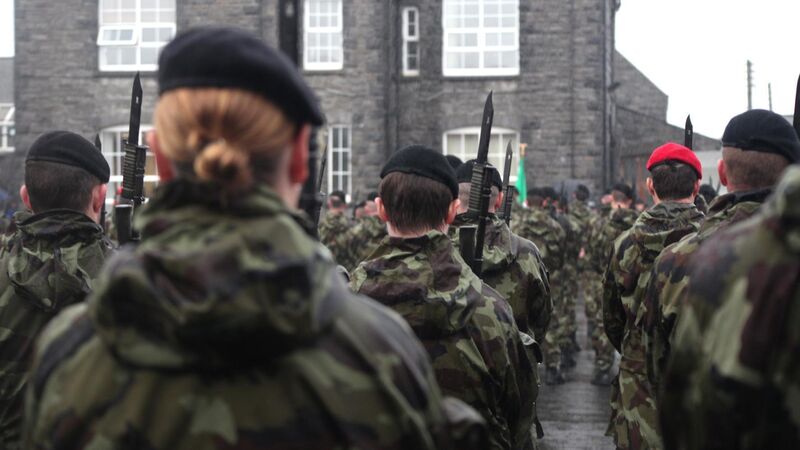Military prosecutor likely to appeal army instructor's 'lenient' sexual assault sentence

The army instructor was found guilty last year following a three-day trial of sexually assaulting a female trainee at a military barracks several years ago. File photo
The Director of Military Prosecutions has signalled he will challenge what the Defence Forces consider a lenient sentence handed down by a military judge to an army instructor convicted of sexually assaulting a young female recruit.
The non-commissioned officer was fined a total of €2,690 at a court-martial in Dublin on Friday as well as forfeiting seniority in his rank for a period of 10 years as punishment.











